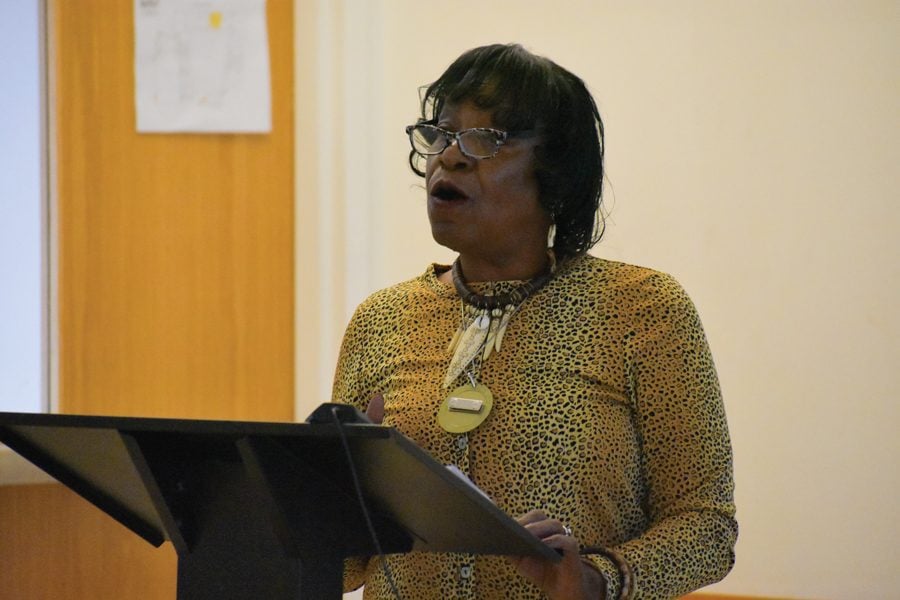Evanston Branch NAACP hosts panel discussing mass incarceration
Julia Esparza/Daily Senior Staffer
Willie Shaw speaks at an event hosted by the NAACP’s Evanston chapter. She called for legal reform to end the mass incarceration of young black men.
February 4, 2018
During her time as a judge, Mary Maxwell-Thomas recommended a young male charged with a crime for an educational program, in lieu of jail time. The boy then went on to earn a college degree and teach in prisons, and she later became the godmother of his son.
Education, instead of jail time, can play an essential role in alleviating the problem of mass incarceration in the United States, Maxwell-Thomas said at a panel hosted by the NAACP’s Evanston branch Saturday.
At the event, three women with experience in the legal system spoke about the justice system’s shortcomings for people of color. The event, held at the Levy Center, was the first of four hosted by the NAACP each weekend during February in honor of Black History Month.
Maxwell-Thomas said while she tries to find alternative options for youth charged with crimes, many judges choose to send these children to jails, where there are few educational options.
“So what happens when they come out?” Maxwell-Thomas said. “They are not going to be able to get a job. They are not going to be able to contribute successfully to the community.”
Maxwell-Thomas said it is a judge’s job to “level the playing field” and that black judges are more likely to direct young offenders to programs that will not hinder their achievement.
Lawyer Juneitha Shambee, another panelist, said the war on drugs exacerbates the oppression of black and brown people by further destabilizing their communities. She said incarcerating young black men takes sons and fathers away from their families.
“A community tries to rebuild itself after you just took such a large portion away. And then you try (taking) this portion that you just put away and put them back without rehabilitating,” Shambee said. “So they didn’t fit before and now they are even worse.”
Shambee said the prison system not only fails to educate and provide opportunities for success after imprisonment, but it also creates emotional and behavioral problems.
She said when young black men are marked as convicted felons, institutions deny them jobs, education opportunities, housing assistance and the right to vote. She added that ex-felons cannot vote for officials who would make policy reform and end the “vicious cycle.”
Willie Shaw, another panelist who has worked extensively in education reform, listed ways in which the government could begin to amend mass incarceration — including policies to “(abolish) the third strike law, end federal incarceration for lower level crimes and eliminate the use of for-profit prisons.”
Shaw said the war on drugs in the 1960s and 70s was “employed to oppress black Americans just after they had made huge gains.” She said it resulted in the decimation of black communities.
Shaw called on both national and local governments to alleviate the issue and provide social welfare programs.
“Mass incarceration contributes significantly to the American poverty rate,” Shaw said. “Conservatives, progressives and law enforcement leaders all agree the country must reduce this prison population, and it can do this without jeopardizing the safety of the public.”
Email: [email protected]
Twitter: @juliaesparza10


